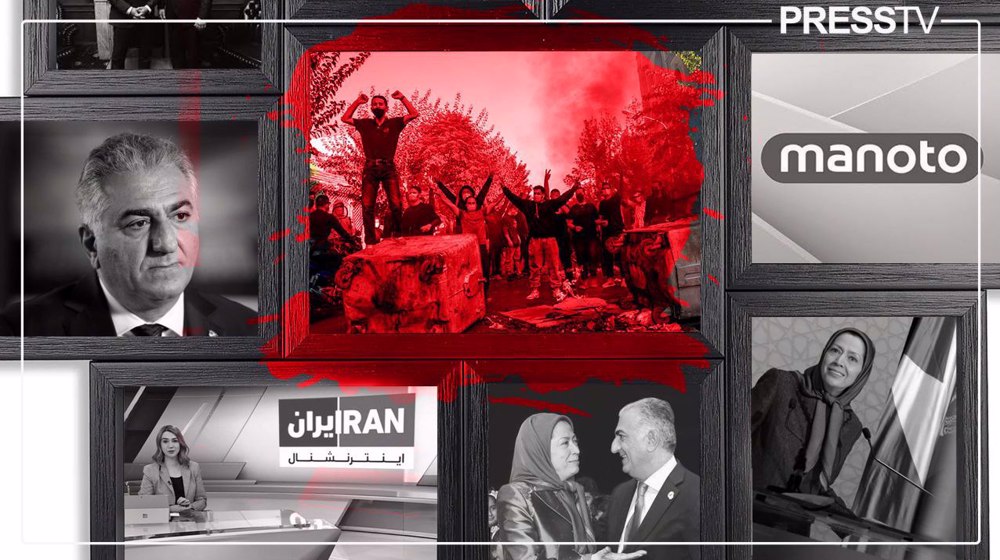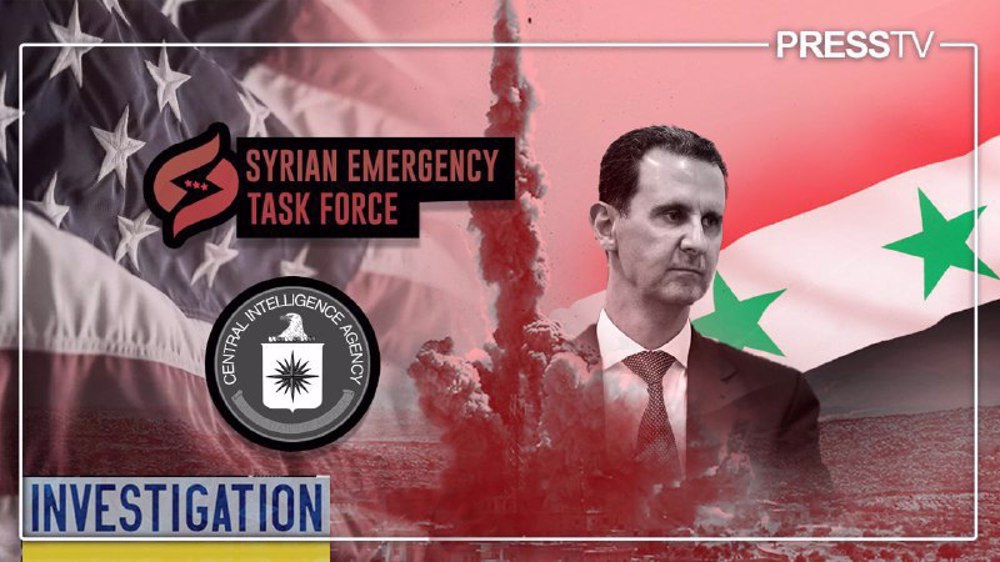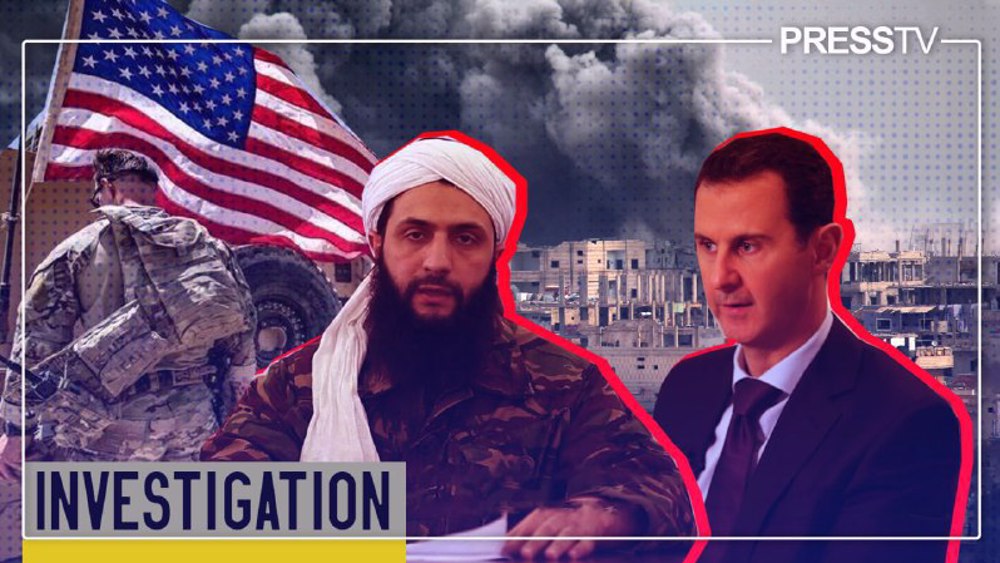Multipronged campaign against Iran with one goal — regime change
By Xavier Villar
There is a permanent social media campaign against the Islamic Republic of Iran; a campaign that intensified after the death of Masha Amini in mid-September.
In this permanent campaign, we can see a discursive pattern that repeats itself in every iteration: women's rights, minorities rights, homophobia, theocracy, etc.
All these discursive elements are already there just waiting to be assembled and re-assembled.
This time, the campaign focused on women's rights and justice. The main narrative here is that a "feminist revolution" is underway on the streets of Iran.
This narrative is built around the idea of a peaceful, general uprising against the "Islamic regime", a "regime" that tries to stop the historical wave that points towards its political dissolution.
The idea of a "peaceful movement" is central in this discursive exercise, and that's why we can't see or read in the Western media about the voluntary young Basij members killed by armed rioters or the death threats against those seen as "regime collaborators".
Reports on these mob attacks would have clashed with their narrative of a "peaceful revolution".
Violence, after all, is the language of the Islamic Republic, right? At least that's what the liberals in Iran, the likes of Sadegh Zibakalam, would like people inside and outside Iran to believe.
They also tell us that democracy, tolerance and dialogue, are intrinsic features of their political vision. But I don't want to talk, again, about the liberal fantasy of a non-violent, and non-racial political vision.
Liberalism aspires to be a universal political language, one that leaves no room for alternative possibilities.
There are some other so-called "opposition groups" that ought to be mentioned here. Let's start with the Pro-Pahlavi ones. They are driven by a sense of nostalgia, a sentimental attachment to a bygone era. But what about their political vision?
The Pahlavis were part of what Professor Salman Sayyid calls "Kemalism". "Kemalism", for him, is not just modernization but Westernization.
It is used to describe the series of transformations in which governments run by those who call themselves Muslims carried out reforms that undermined the possibility of Muslim political agency.
The Kemalist family includes not just the Pahlavis. Bourguiba in Tunisia, Ataturk in Turkey, and Saud in Saudi Arabia are all examples of that political family.
One of the main features of Kemalism is the idea that Islam cannot be promoted to the status of political identity.
The Pahlavis in Iran removed the influence of political Islam from public institutions. They preferred the pre-Islamic language, not because of its historical values, but because they thought that resorting to a Persian past would erase the possibility of a Muslim agency.
As the Islamic Revolution showed us, they were totally wrong. The Muslim agency was the driving factor behind the Islamic Revolution, the same revolution that put the last nail in the Kemalist coffin, at least in Iran.
The Pahlavis are gone but the Kemalist ideology is still present in 'Muslimistan', and still voicing their hate against the Islamic Republic.
A more noisy group online is the Mojahedin-e-Khalq (MKO), rebranded as the so-called "National Council of Resistance of Iran". The MKO and its troll farm in Albania became the backbone of online propaganda against the Islamic Republic.
The MKO is essentially a cult-like organization, reviled by Iranians, even those who don't support the politics represented by the Islamic Republic because they sided with former Iraqi dictator Saddam Hussein in his war on Iran in the 1980s.
At least 15,000 Iranians have been killed by the group since the establishment of the Islamic Republic in 1979. And, nowadays, the MKO has the support of people like John Bolton, the hawkish former US national security advisor.
The group also enjoys good relations with the Zionist regime and its spy agency Mossad. Iranian authorities say the terrorist group was behind some of the sabotages and killings of security forces in the country past few months.
The MKO works as a kind of proxy group for the United States and its allies. Let's deconstruct this.
If we define power as the capability of autonomous action, it's easy to see the MKO has no power of its own. The group relies on the US and the Israeli regime for its survival, in political as well as financial terms.
We're not talking here just about the material and economic support the group gets from the West —it receives thousands of dollars as payment for its proxy role on behalf of the West, and Saudi Arabia-— we are also talking here about the discursive elements that the group tries to articulate.
These discursive elements are not even original. The group just mimics some Western concepts and tries to pepper them with some "Persian flavour" as a way to make their message more palatable.
In other words, the MKO's discursive is not a nativistic, Iranian kind of message. Its Western grammar is disguised, or they think so, as a kind of nationalistic language or a murderous language disguised as "pro-human rights" speech.
It is also worth noting here, even briefly, the role played by some media networks such as ManotoTV and Saudi-funded Iran International among others. These networks are part of the campaign against the Islamic Republic. In fact, can they are a vital part of the endless effort to trigger the collapse of the Islamic Republic.
So, there is a social media campaign, different so-called "opposition groups" and some media networks spreading hate against the Islamic Republic and inciting riots.
What else is there? They have a common narrative and discourse. One shared by all these different groups and organizations. A single discourse, with different articulations, but with the same goal: to bring about the "regime change" in Iran.
Xavier Villar, PhD in Islamic studies, is a researcher based in Spain and Iran.
(The views expressed in this piece do not necessarily reflect those of Press TV.)
VIDEO | Press TV's news headlines
VIDEO | Iran honors top Science Olympiad medalists
VIDEO | Austrians arrested at Gaza protest in Vienna
10 killed in bus crash in western Iran
VIDEO | One-man-band journalism with Civili
5 Israeli forces killed as Palestinian fighters face up to regime’s war machine
VIDEO | An insider's view of the country: Persian Tahini, Royan in Mazandaran
VIDEO | Israeli settler killed during strike against Tel Aviv; fresh aggression targets Yemen’s capital










 This makes it easy to access the Press TV website
This makes it easy to access the Press TV website